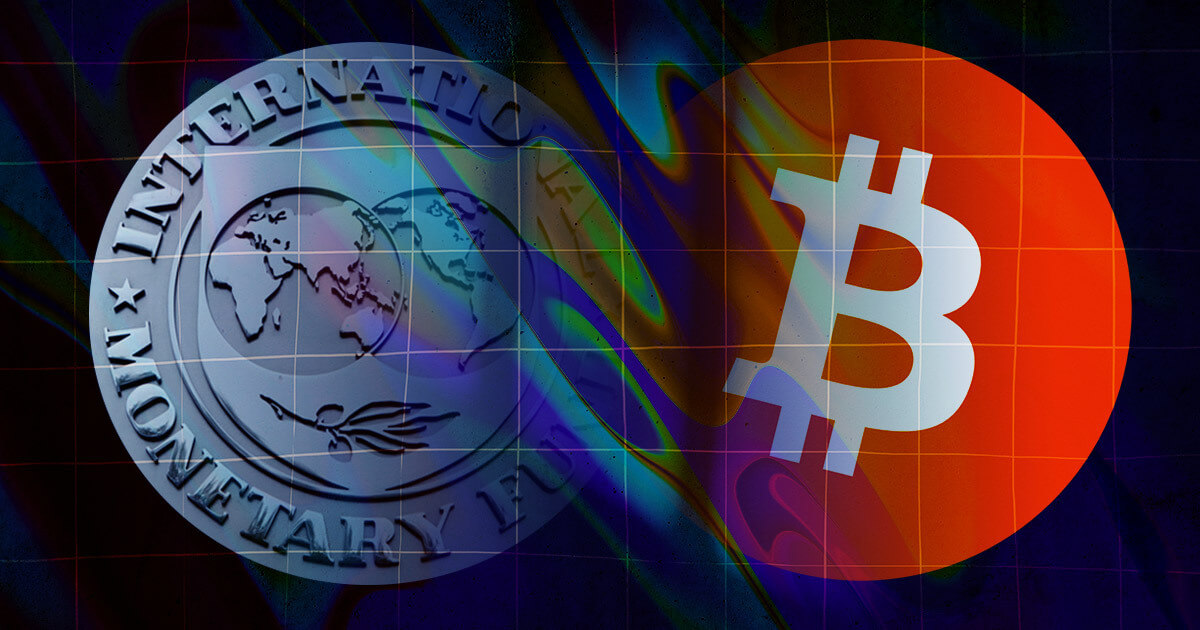Last week, the crypto community was taken aback as the Central Bank of Argentina moved to prohibit retail banks from providing Bitcoin and cryptocurrency services.
In the release, the CBoA said risks are associated with using digital assets, including volatility, the threat of cyber attacks, money laundering, and terrorist financing.
Global authorities have voiced similar concerns in the past. For example, EU Bank President Christine Lagarde blasted the role of digital assets in crimes like money laundering in 2021.
However, the timing of the Argentine central bank’s statement was unusual in that it came two days after two of the country’s largest banks had announced they were offering crypto services.
It later emerged the International Monetary Fund (IMF) had stipulated several conditions, including discouraging the use of cryptocurrencies, as conditions for receiving a bailout loan.
What did Argentina get in return?
The country’s senators voted 56 to 13 to accept the IMF’s $45 billion loan deal.
According to the Letter of Intent, the money is an ‘extended arrangement’ to pay for ‘outstanding obligations’ already owed to the IMF. Included with the Letter of Intent was a ‘Technical Memorandum of Understanding,’ which detailed a long list of stipulations.
The section titled ‘Strengthening financial resilience‘ gave measures to safeguard the retail banking sector, including enhancing consumer protection, digitizing payment, and discouraging the use of cryptocurrencies.
Other conditions include reducing deficits, interest rate hikes, and ‘significant cuts’ to energy subsidies. All of which would put added pressure on Argentinians, who are already contending with an inflation rate of 55%.
Fundcorp Economist Roberto Geretto said the loan was necessary for Argentina to avoid defaulting on its existing arrangements with the IMF. However, wasn’t accepting the deal kicking the can down the road?
Loan addicts
The IMF says it supports low-income countries through various measures, including financial support, poverty reduction programs, and building stable economic positions.
However, this support comes at a price. Eritrean media outlet TesfaNews detailed the strategies employed by the World Bank and IMF to ‘destroy Africa.’ Both organizations impose conditions on low-income countries that allow unfettered access to raw materials and markets.
“only if the poor countries privatized their economies and allowed western corporations an almost free access to their raw materials and markets.”
The result is a poverty trap, which only gets spotted when it’s too late. With no way to escape, a cycle of poverty and indebtedness ensues.
Similarly, in a report on globalization, authors John Cavanagh and Jerry Mander said the IMF, World Bank, and World Trade Organization policies promote an absurd ideology that concentrates wealth and power into the hands of the ‘corporate elite.’
“Rather than enhancing the life of people and the planet, they consolidate and secure the wealth and power of a small corporate élite.”
The IMF has concerns with Bitcoin
Earlier this year, the IMF urged El Salvador to reverse its Bitcoin legal tender law, warning that the current situation jeopardizes the country’s chance of receiving additional loan money.
More recently, following the announcement by the Central African Republic to follow El Salvador’s lead, the IMF expressed concerns by saying said Bitcoin poses ‘ significant legal, transparency, and economic policy challenges.’
In a recently published interview on the IMF website, Cornell University Professor and author of The Future of Money: How the Digital Revolution Is Transforming Currencies and Finance, Eswar S. Prasad, gave his take on digital currencies.
Prasad’s responses gave a pro-central bank digital currency message. But, he wasn’t so keen on Bitcoin, calling it ‘slow and cumbersome,’ which makes it a poor medium of exchange.
Prasad’s arguments are voided by the Lightning Network, which raises questions about what the IMF says about Bitcoin behind closed doors.
What does this boil down to?
Numerous Bitcoin advocates have rallied to defend Bitcoin in the face of IMF disparagement.
Political Strategist Dennis Porter didn’t hold back in calling out the ‘bankster gangsters’ for realizing Bitcoin threatens their position. He said that thanks to Bitcoin, countries no longer need predatory IMF loans to survive.
The IMF is finally realizing that Bitcoin is a threat to its power. Nations don’t need to borrow billions to survive. They can grow their economies with #Bitcoin and avoid the bankster gangsters pillaging them.
— Dennis Porter (@Dennis_Porter_) May 10, 2022
Likewise, Nico from the Simply Bitcoin Show echoes Porter’s sentiment by calling the IMF’s actions in Argentina ‘disgusting.’ He presumes a similar thing happened to Honduras.
What is happening in Argentina is disgusting and I’m pretty sure it happened in Honduras as well.
The IMF bribes bankers to be hostile towards Bitcoin, these people will do anything to keep power and keep these countries enslaved!
— NICO⚡️ (@BITVOLT7) May 6, 2022
In April, Honduras made Bitcoin legal tender but only in the Honduras Prospera special economic zone. The Central Bank of Honduras issued a statement saying it cannot endorse cryptocurrency.
In an email to CryptoSlate, Chris Kline, the co-founder of Bitcoin IRA, said the IMF isn’t interested in fostering cryptocurrency use and sees it as a hindrance to its goals. While some may condemn Argentina for accepting the loan deal, Kline says lawmakers in the country had little choice.
“Currently, Argentina is dependent upon the money that comes from the IMF to keep its economy running. On the other hand, the IMF doesn’t have much interest in crypto and views it as potentially disruptive to its mission.”
While the Bitcoin equals freedom narrative is somewhat played out, the IMF’s recent actions only give weight to that statement.


















